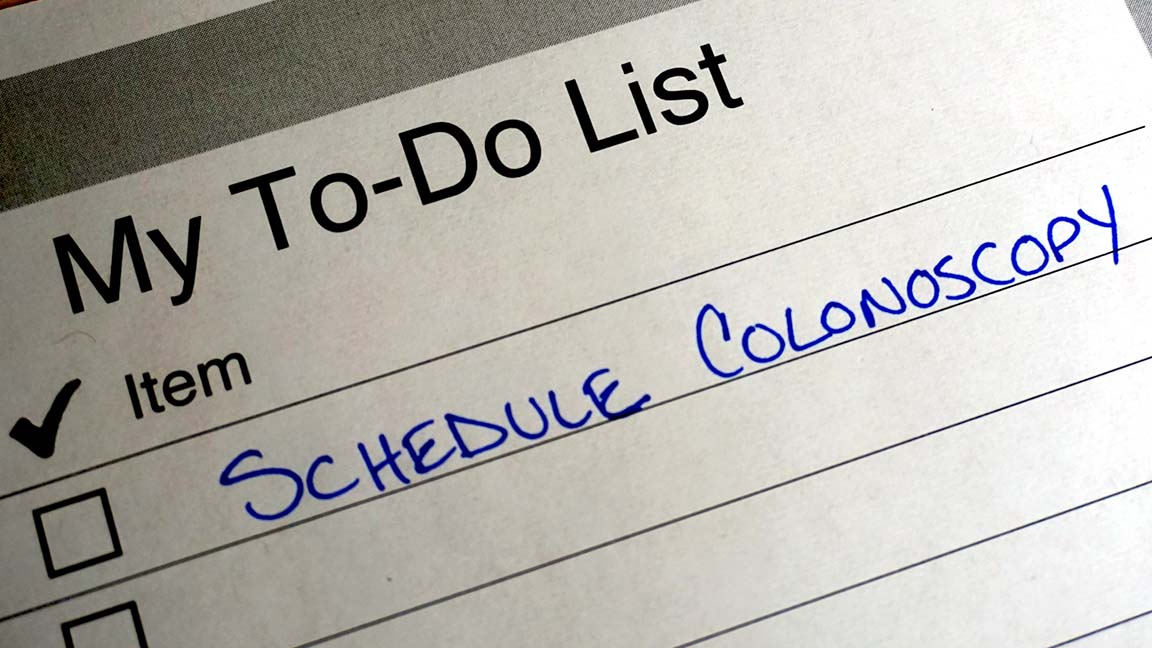Colonoscopies save lives. Delaying or skipping a colonoscopy for fear of the preparation or the screening itself could result in something far worse: a cancer diagnosis.
“Colonoscopies catch precancerous polyps before they have a chance to change into cancer,” says Rebecca Hash, a nurse practitioner at Tidelands Health Gastroenterology at Murrells Inlet. “It’s a very important procedure because it can save your life.”
During a colonoscopy, a thin, flexible fiberoptic instrument with a tiny camera is inserted through the anus to allow a doctor to examine the lining of the colon and check for inflammation and precancerous polyps. It is one of the best colorectal screening tests available. Other approaches are not as accurate and thorough as a colonoscopy, Hash says.
Colorectal cancer is the third most common cancer diagnosed in both men and women and the second-leading cause of death in the U.S., according to the American Cancer Society. It’s expected to cause nearly 53,000 deaths this year. But death rates have been dropping, likely because of colonoscopy screening.
Because colon cancer often doesn’t show symptoms until it becomes more advanced, screening colonoscopies are critical for early detection of pre-cancerous polyps, Hash says. Each year, more than 140,000 people are diagnosed with colon cancer.
Screening colonoscopies should begin for most men and women at age 45, followed by subsequent screenings every 10 years thereafter. Some people at greater risk for colon cancer, including people with close relatives who have had colon cancer, may need to undergo screenings earlier and more often. If you have questions about when you should begin routine colonoscopies, speak with your care provider.
Fear and embarrassment are the primary reasons most people avoid or delay getting the screening, Hash says.
“To help comfort patients, I will often share my own experience,” adds Hash, who had a colonoscopy this summer and reported no issues, pain or discomfort. “I spent an afternoon running to the bathroom, and that was the worst of it. Battling cancer is a far, far worse alternative.”
Many people are anxious about having a colonoscopy because they think it’s painful, they don’t like the idea of baring their bottom or they worry about the results. Hash says having information about the procedure and knowing what to expect can help alleviate fears and concerns.
The day before your screening, you’ll switch to a liquid diet to begin cleansing the colon. A clean colon is essential so your physician can examine the colon for abnormalities and polyps.
Consistent with your provider’s preparation instructions, you’ll also need consume Gatorade or water and colon cleanser. You’ll want to stay close to the bathroom during this part of the preparation since there will be frequent trips to the toilet.
On the day of your colonoscopy, you’ll need to bring someone with you to your appointment because you’ll be recovering from sedation after the procedure.
You’ll be given a hospital gown and you will receive medication to help you relax and sleep through the procedure. A nurse anesthetist, a technician, your gastroenterologist and an anesthesiologist will be present. Your oxygen, blood pressure and heart rate will be monitored throughout. The screening itself takes about 15 to 20 minutes.
During that period, your physician will look for abnormalities in your colon and may remove polyps and biopsy-inflamed tissue, all of which may be sent to a pathologist for examination. Any area where tissue is removed is cauterized to prevent bleeding.
Once in recovery, you’ll wake from sedation. Before being released, you will be expected to drink liquids and expel gas from the colon. During the procedure, air is dispensed in the colon to later ensure it is functioning properly afterward.
“Most people walk out and do not have a ‘hangover’ from the anesthesia,” Hash says. “Most do really well, and most are able to eat whatever they want. Some may be tired and feel dehydrated, so it’s important to drink plenty of fluids to rehydrate. But there is typically no pain or discomfort after the procedure.”
If you subsequently experience abdominal pain, bleeding or bloating, it’s important to seek prompt immediate medical attention. However, such symptoms are very rare, Hash says.
At Tidelands Health, our region’s largest health care provider, there’s no need for a referral to schedule a screening colonoscopy. Simply call 843-701-5532.
“If you are due for a colonoscopy, please don’t put it off,” Hash says. “It’s one of the most important things you can do to protect your health.”
